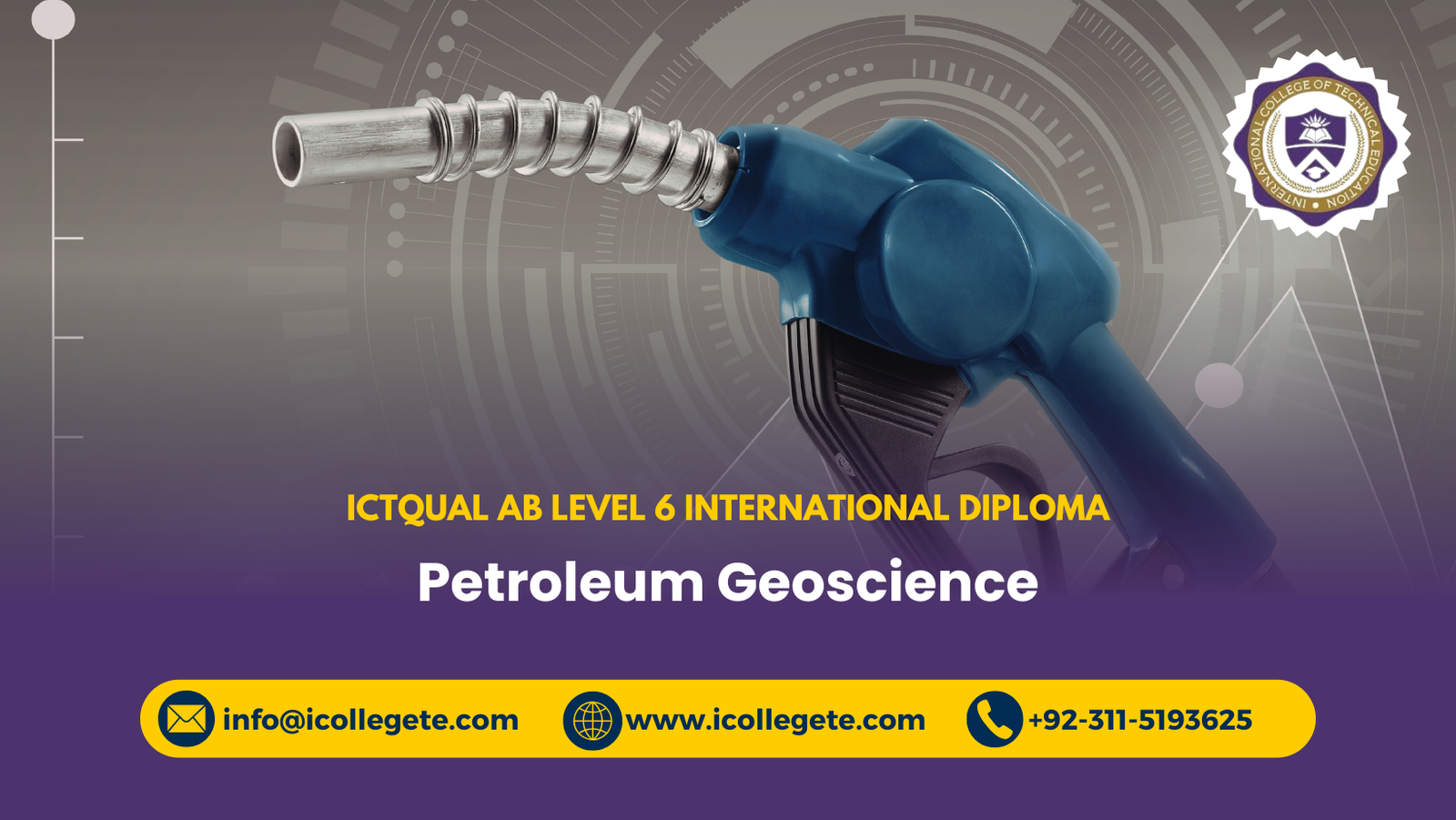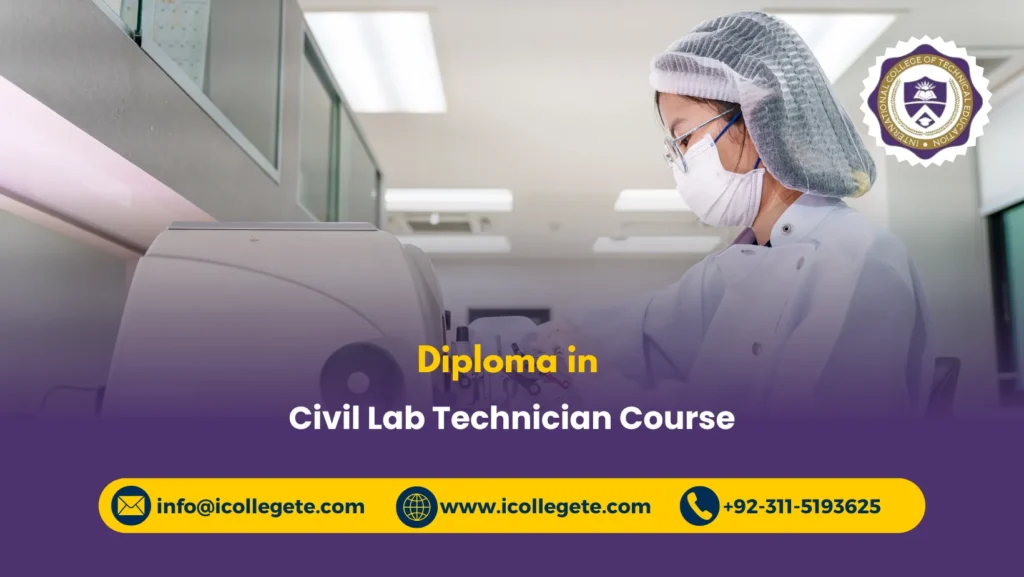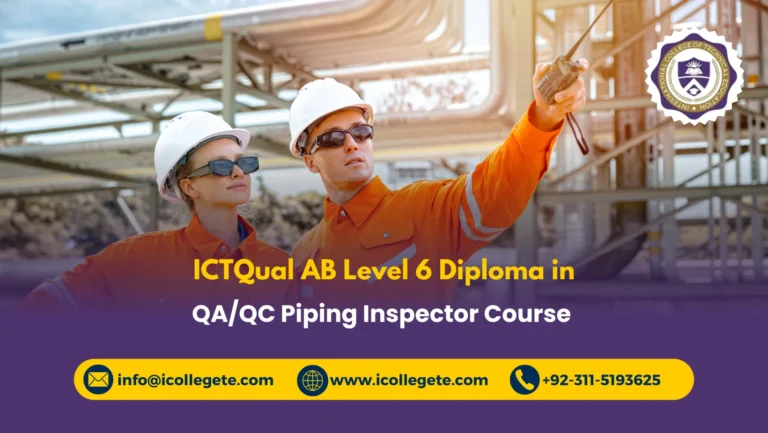The ICTQual AB Level 6 International Diploma in Petroleum Geoscience is a globally recognized qualification designed for professionals aiming to excel in the exploration and development of hydrocarbon resources. This advanced program provides in‑depth knowledge of geology, geophysics, reservoir characterization, and seismic interpretation, equipping learners with the technical expertise required to support oil & gas exploration and production.
The curriculum emphasizes practical applications of petroleum geology, basin analysis, and risk assessment, ensuring graduates can contribute to sustainable resource management and energy security. Learners also gain insights into health, safety & environment (HSE) practices, preparing them for leadership roles in the global oil & gas industry.
Graduates of this diploma are well‑positioned for careers as Petroleum Geoscientists, Exploration Managers, Reservoir Analysts, and Energy Consultants, making this qualification a gateway to high‑demand opportunities in the energy sector worldwide.
Year 1 – Foundation in Petroleum Geoscience
- Principles of Geology and Earth Sciences
- Introduction to Petroleum Exploration
- Mineralogy and Petrology
- Sedimentology and Stratigraphy
- Geophysical Methods in Exploration
- Introduction to Reservoir Engineering
- Drilling Operations Fundamentals
- Petroleum Fluid Properties
- Geoscience Data Collection Techniques
- Health, Safety, and Environmental Awareness
- Scientific Report Writing
- Introduction to Geospatial Technology
Year 2 – Intermediate Petroleum Geoscience
- Structural Geology and Tectonics
- Advanced Sedimentary Basin Analysis
- Reservoir Characterisation and Modelling
- Petrophysics and Well Logging
- Seismic Interpretation and Geophysics
- Drilling Fluid and Wellbore Stability
- Production Systems and Flow Mechanics
- Hydrocarbon Exploration Techniques
- Risk Assessment and Project Management
- Environmental Impact and Sustainability
- GIS Applications in Petroleum Geoscience
- Technical Communication and Data Analysis
Year 3 – Advanced Petroleum Geoscience
- Advanced Reservoir Simulation
- Enhanced Oil Recovery Techniques
- Petroleum Economics and Project Evaluation
- Exploration Strategy and Field Development
- Advanced Geophysics and Seismic Modelling
- Subsurface Fluid Flow and Reservoir Dynamics
- Drilling Design and Well Planning
- Petroleum Laboratory Techniques
- Energy Transition and Sustainable Practices
- Research Methods in Geoscience
- Capstone Project in Petroleum Geoscience
- Professional Development and Leadership in Energy
- Understand geological and geophysical principles of petroleum exploration
- Analyze subsurface structures and stratigraphic sequences for hydrocarbon potential
- Apply seismic and well logging data to identify oil and gas reservoirs
- Interpret geochemical and petrophysical data for reservoir evaluation
- Utilize GIS, remote sensing, and digital mapping in exploration projects
- Assess environmental and sustainability factors in petroleum operations
- Develop reservoir models using advanced software tools
- Evaluate economic and risk aspects of exploration and production projects
- Conduct drilling and data collection operations safely and efficiently
- Integrate multidisciplinary data to support exploration decisions
- Apply project management principles in petroleum exploration projects
- Communicate technical findings effectively to stakeholders
- Employ modern technologies in geoscience data analysis and visualization
- Promote sustainable exploration and responsible resource management
- Prepare for advanced study or specialized roles in geoscience and energy
- Earn an internationally recognized qualification in petroleum geoscience
- Develop specialized expertise in subsurface exploration and analysis
- Gain hands-on experience in geological and geophysical data interpretation
- Enhance career opportunities in global oil and gas industries
- Strengthen technical and analytical problem-solving skills
- Learn to use industry-standard software and digital tools
- Understand sustainable exploration and environmental management principles
- Build knowledge of economic and operational aspects of exploration projects
- Prepare for leadership and project management roles in geoscience
- Gain practical exposure through real-world case studies and fieldwork
- Improve professional credibility and employability worldwide
- Contribute to responsible resource discovery and management
- Develop capabilities for research, innovation, and technological adaptation
- Access career opportunities across energy, mining, and consulting sectors
- Establish a foundation for postgraduate or Level 7 qualifications
- The ICTQual AB Level 6 International Diploma in Petroleum Geoscience is ideal for geologists, geophysicists, drilling engineers, and exploration professionals seeking career advancement in the oil and gas sector. ICTQual AB Level 6 International Diploma in Petroleum Geoscience is also suitable for graduates in earth sciences, mining, or energy-related disciplines who wish to specialize in petroleum exploration and production. Additionally, professionals from environmental management, project management, or research backgrounds can enroll to expand their expertise in applied geoscience and energy systems.











